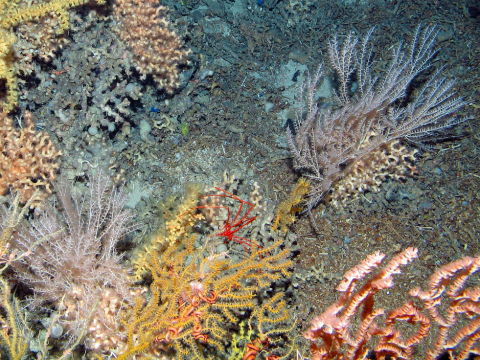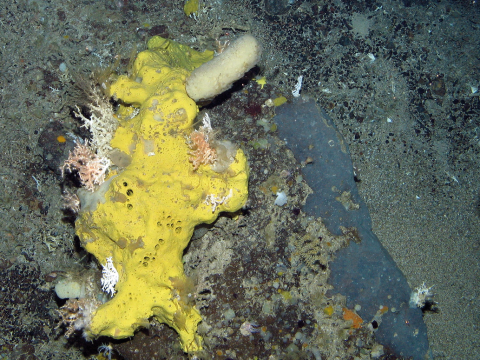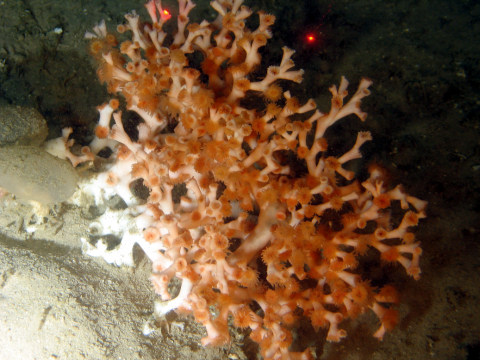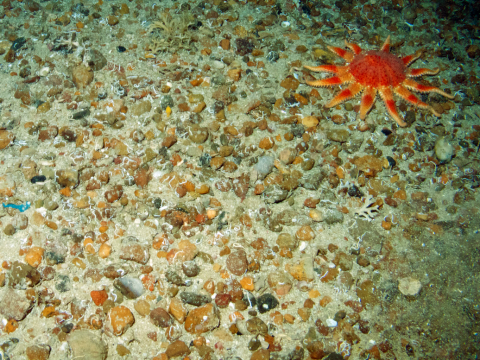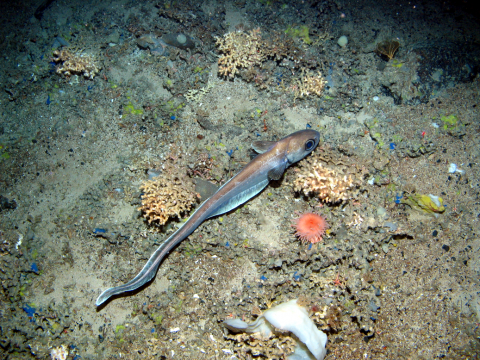Natural resources
Provisioning services
Large parts of the deep sea remain relatively unexplored and poorly understood. However, as some inshore and continental shelf fisheries have declined, there has been a growth in interest in deep-sea fisheries. Some of these are associated with geomorphological features or colonising species that have formed biogenic habitats. Maintaining the health of these deep-sea habitats and communities would help support certain fisheries, although exploitation of stocks and any impacts on habitats need to be within the limits of their natural resilience if fisheries are to be sustained. Every expedition to the deep sea reveals previously unknown species; learning about the specialised adaptations and biochemistry of deep-sea organisms can sometimes lead to medical and technological advances.
Cultural services
Direct experience of deep-sea habitats is limited to scientists, the oil and gas industry and fishers. However, deep-sea habitats provide a source of fascination that can appeal to a wide audience, such that awareness, enjoyment and understanding is not dependent on being able to see these habitats and/or associated species first hand.
Functions
Regulating services
Deep-sea habitats and their communities are surprisingly varied. Key functions include contributions to:
- Climate regulation through assimilation, storage and/or cycling of carbon.
- Waste breakdown and detoxification of water and sediments by assimilation & cycling of organic detritus that descends from shallow seas.
- Sediment stabilisation
- Resilience, with habitats in good condition being more resilient to invasive non-native species and disease.
Recovery in the deep sea is slow. Human activity in the deep sea will result in impacts. However, if the deep sea is to be used as a source of minerals then the nature of the impacts should be fully appraised with the objective of enabling the natural functions to continue. This should ensure continued benefits for people and nature.
Supporting services
The benefits of deep sea habitats are underpinned by natural processes associated with the habitat and its communities, including:
- Biomass production & predator-prey interactions, with the deep-sea food chain dependent on detritus falling from above
- Habitat for other species (supporting biodiversity)
- Larval/gamete supply (supporting connectivity)
- Nutrient cycling
Ensuring these natural processes continue enables the ongoing supply of a wide range of benefits to people and nature.
Benefits for people
- Food and nutrition
- Clean water and sediments
- Knowledge
- Spiritual / cultural
- Jobs and business
- Climate and temperature regulation
- Carbon storage



